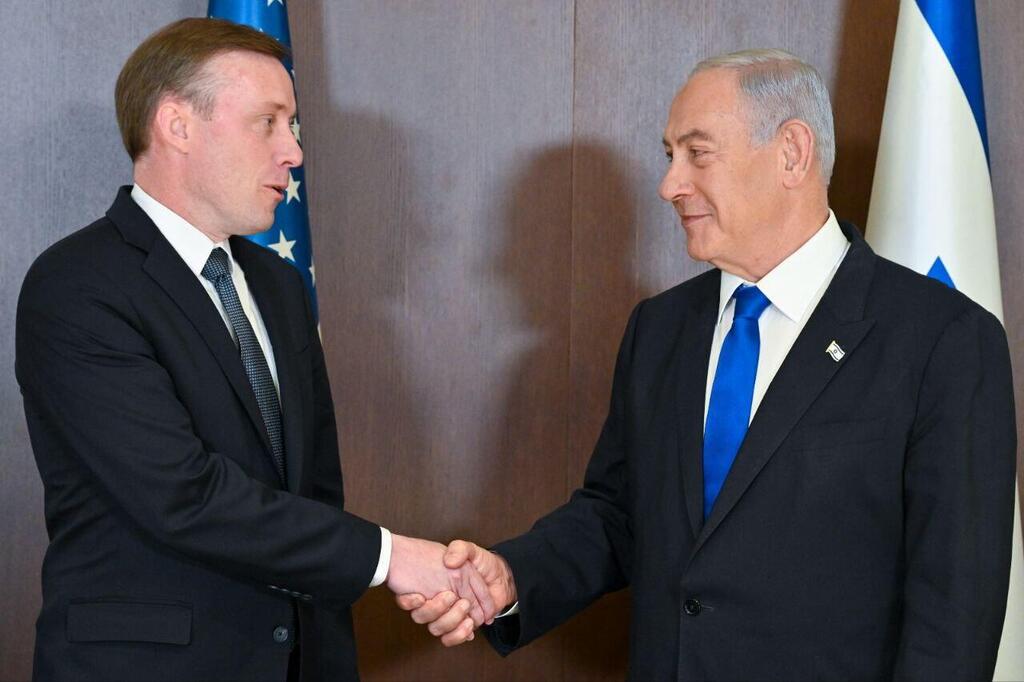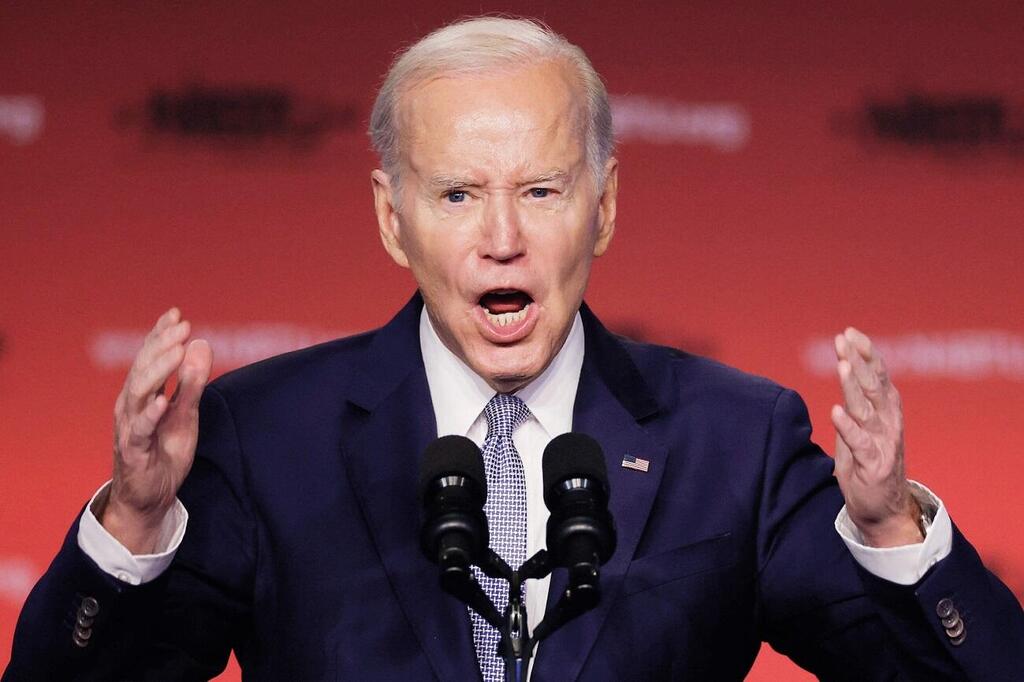Getting your Trinity Audio player ready...
White House national security adviser Jake Sullivan on Thursday downplayed tensions between the U.S. and Israel that have emerged since Benjamin Netanyahu regained the position of Israeli prime minister late last year, and added there were no preconditions to his long-awaited visit to Washington.
Other stories:
It is customary for every Israeli leader to meet with the U.S. president in Washington after winning an election, but President Biden had not yet extended an invitation to Netanyahu and had even gone as far as publicly announcing that there would not be a White House visit for Netanyahu anytime soon, responding to a reporter's question on the tarmac between flights. This happened one day after U.S. Ambassador to Israel Tom Nides had reassured Israeli reporters that the visit would happen very soon.
2 View gallery


White House national security adviser Jake Sullivan and Prime Minister Benjamin Netanyahu
(Photo: GPO)
“When we’ve got a visit to announce, we’ll announce it. There’s not some set of conditions or circumstances. The president has had a long relationship with Netanyahu and we remain deeply engaged with the Israeli government day by day. So a lot of the sturm und drang on the media has been overblown,” Sullivan told the Washington Institute’s Annual Conference.
He said he held a video conference with Israeli counterpart Tzachi Hanegbi on Wednesday, with Netanyahu joining in for part of it. However, he did not mention when Biden would invite Netanyahu to visit Washington.
Sullivan also said the United States will "take the necessary action to ensure that Iran does not acquire a nuclear weapon" and still seeks a diplomatic outcome to the challenge posed by Tehran.
"Yes, we will take the necessary action to ensure that Iran does not acquire a nuclear weapon," Sullivan said. "At the end of the day, that is the fundamental test - Iran cannot have a nuclear weapon. They do not today and they cannot have one."
Sullivan said Washington was working with allies including Israel to deter Iran from developing a weapon.
"We will continue to send a clear message about the costs and consequences of going too far, while at the same time continuing to seek the possibility of a diplomatically brokered outcome that puts Iran's nuclear program back into a box," he said.


